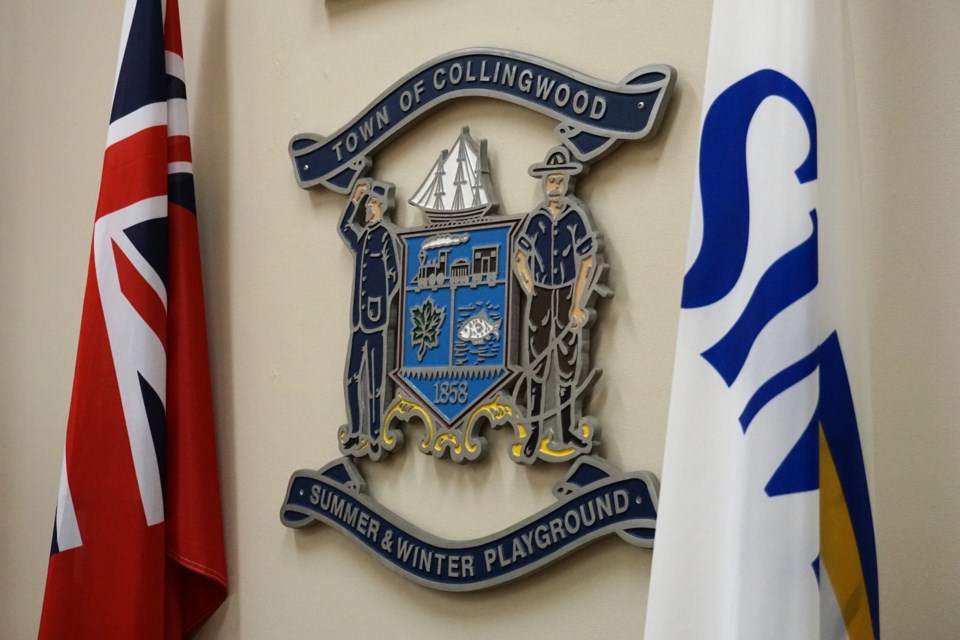In the first draft of Collingwood’s 2024 budget, there is about $615,000 in proposed spends that are necessary due to changing provincial regulations, according to town staff.
During the Oct. 16 committee of the whole meeting, councillors got a look at the first draft of the 2024 budget. Included in the budget were five items based on new rules from the province: the testing/removal of excess fill at the town’s public works yard, an updated website/engagement platform, a new hire for accessibility, the creation of a maintenance manual for the consolidated linear infrastructure environmental compliance approval system and a development approval process review.
“Is there any ability for us to go to the province and say, 'here, again, is more downloading onto us from you'?” asked Mayor Yvonne Hamlin during discussions. “We have enough issues of our own.”
“I guess that’s not what you do, but it’s what I feel like doing,” she added.
Under the proposed budget, $300,000 is listed for excess fill at the town’s public works yard, located at 545 Tenth Line. Historically, the yard has been used as a dumping storage location for fill and soil from corporate tasks and projects.
This item is marked in the budget as urgent due to changes to provincial legislation, specifically Ontario Regulation 406/19. Given the new regulation, the stored materials need to be tested and removed from the site.
During Monday’s meeting, councillors asked if the request could be phased over two years to reduce the cost in 2024, which was confirmed and will be reflected in the second draft of the budget.
There are two budget items that are requested this year due to the requirement from the province for municipalities to be compliant with the Accessibility for Ontarians with Disabilities Act (AODA): $130,000 for an updated website/engagement platform and $95,424 for a new staff hire on a one-year full-time contract to ensure the town reaches AODA compliance.
The AODA aims to identify, remove and prevent barriers for people with disabilities. The AODA became law on June 13, 2005 and applies to all levels of government, non-profits, and private-sector businesses in Ontario that have one or more employees.
Under the AODA, the government is responsible for creating accessibility standards that organizations must follow, with the ultimate goal to make Ontario more accessible and inclusive by 2025.
A new requirement under the province’s Environmental Protection Act is credited for a $50,000 request in the budget for the creation of a maintenance manual for the consolidated linear infrastructure environmental compliance approval system.
Lastly, $40,000 has been requested for a development approval process review, which is partially due to Bill 109, the More Homes for Everyone Act.
The legislation was the provincial government’s first step in its plan to address recommendations from the Ontario Housing Affordability Task Force. The steps are based on the premise that reduced housing affordability is mostly due to an increase in population and a lack of supply.
When reached for comment by CollingwoodToday regarding the mayor’s comments, Simcoe-Grey MPP Brian Saunderson said provincial regulations can be a balancing act between making sure there are appropriate checks and balances in place while, at the same time, trying to remove red tape.
“It’s certainly a topic of discussion down here,” he said.
Saunderson previously served as Collingwood’s deputy mayor and then mayor, giving up his post when he ran for Simcoe-Grey MPP in 2022.
“I know from my past experience that municipalities are the most cost-effective level of government. They have a lot to do with very little resources,” he said. “We’re not trying to add to the burden but at the same time, some of these costs are necessary.”
“I know the frustrations. We are trying to find ways to help municipalities make ends meet,” he added.
Saunderson also noted that the $615,000, while it might seem like a big number, is not that big compared to the overall budget for Collingwood, which is proposed at $153.5 million so far, assuming there is only a two per cent tax increase.
“While I appreciate that municipalities have to be penny-conscious, I don’t think this is a significant burden,” he said.
For this year’s budget exercise, town staff divided the budget into four priorities. All items marked in the first priority group are considered extremely urgent and were included in a base two-per-cent increase budget.
Council is also considering three other groups of items: the second priority is considered urgent, the third group is considered important and the fourth priority group is considered important but could be deferred to a future budget year.
Of the five items that are requested in the budget due to provincial changes, all of them are in the priority-two group. The tax rate will be determined based on how many items in each of the priority groups council approves.
At the end of discussion at their Oct. 16 meeting, councillors voted in favour of carrying all five items through to the next draft of the 2024 budget.

